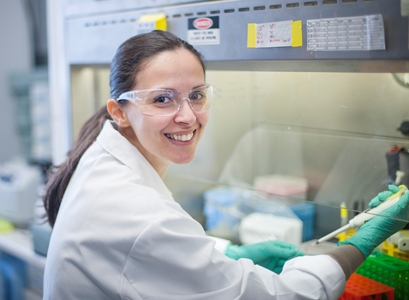Spotlight on the Walter and Eliza Hall Institute
12 February 2016
The Walter and Eliza Hall Institute is Australia’s oldest medical research institute, founded in 1915. Since its earliest days, immunology and microbiology have underpinned the institute’s research into some of the most significant diseases impacting our community.
The institute has been home to many of Australia’s most notable immunology and microbiology pioneers, including Sir Frank Macfarlane Burnet, Sir Gustav Nossal, Dr Charles Kellaway, Professor Ian Mackay, Professor Jacques Miller and Professor Suzanne Cory.
The institute’s current research focuses on infectious diseases , immune disorders , and cancer. Integrated teams of scientists and clinicians bring together basic science with capabilities in clinical translation, drug discovery, bioinformatics and population biology. This enables institute researchers to pursue long-term goals of developing better ways to diagnose and treat diseases through a rigorous understanding of the molecular and cellular processes underpinning health.


Dr Alyssa Barry and PhD student Sofonias Tessema (above left) carry out malaria research at Walter and Eliza Hall Institute and Infectious Diseases clinician Dr Samar Ojaimi (above right) is also a PhD student at the institute.
Some of the recent highlights of the institute’s infection and immunity research include:
- Identifying a potential new treatment for hepatitis B, now in clinical trials
- Developing the first genetically attenuated malaria vaccine to reach human clinical trials
- Identifying the components of gluten that are toxic to people with coeliac disease, and using this to develop new diagnostic tests and a potential treatment for coeliac disease, now in clinical trials
- Developing an immunotherapy that is in clinical trials to prevent type 1 diabetes in children
- Discovering how Toxoplasma parasites hijack host cells and lie dormant, potentially offering insights vaccine development as well as the links between Toxoplasma and psychiatric illnesses
- Revealing the immunological role of the appendix in intestinal immunity
- Uncovering a new genetic cause of one of the most common forms of primary immunodeficiency
Located in Melbourne’s Parkville biomedical research precinct, the Walter and Eliza Hall Institute is has close ties to The Royal Melbourne Hospital and The University of Melbourne. More than 150 Australian and international students are currently enrolled at the institute, as the university’s Department of Medical Biology.
The institute’s research benefits from affiliations with local, national and international alliances including the Melbourne Genomics Health Alliance, the Australian Genome Research Facility and the Asia Pacific Malaria Elimination Network, as well as strong links to biotech and pharmaceutical companies, philanthropic bodies and non-governmental organisations.
For more information: www.wehi.edu.au

